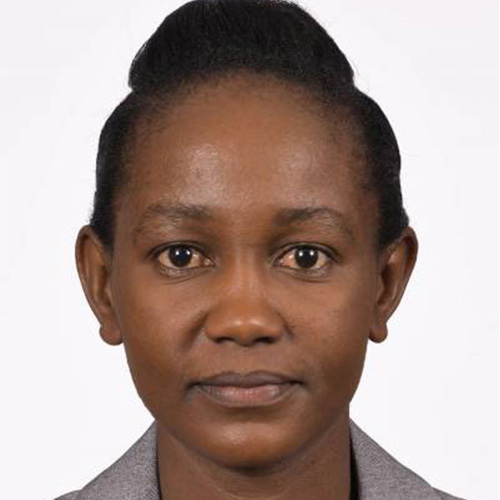
Christine Musyimi
Country (Nationality)
Kenya
Grantee Title
Project- Engaging Traditional Birth Attendants to reduce maternal depression in rural Kenya (Engage-TBA)
Grantee Description
Christine Musyimi is a mental health researcher and the head of research ethics and scientific publications office at Africa Mental Health Foundation (AMHF). She obtained her Bachelor’s degree in Nursing and master’s in medical statistics from the University of Nairobi in Kenya and awaits her PhD defence on global mental health in November, 2017 at Vrije Universiteit, Amsterdam. She has been a recipient of two Grand Challenges Canada grants and a pioneer in Kenya to introduce evidence-based mental health practice among traditional and faith healers. Christine has written extensively on the challenges and opportunities available to initiate collaborative processes between formal and informal health sectors (traditional and faith healers) and has presented these findings in both local and international conferences and published in newsletters, books and several impact-rated journals. Her current work involves engagement of Traditional Birth Attendants to deliver conventional mental health care to mothers during the perinatal period.
Project- Engaging Traditional Birth Attendants to reduce maternal depression in rural Kenya (Engage-TBA)
Traditional Birth Attendants (TBAs) in rural Kenya are sought for maternal mental healthcare due to their accessibility and affordability. Therefore, they are an important resource for reducing gaps related to scarcity of mental health professionals and demanding workload due to the high number of patients in primary health care settings. ENGAGE-TBA will engage traditional birth attendants to provide psychosocial interventions to mothers during the perinatal period and refer complicated cases of depression to health facilities. This will promote a sense of belonging for TBAs and ensure accessible and acceptable basic mental health care in under-resourced areas while linking these mothers to primary health care, to ensure safe deliveries and promote their mental well-being and that of the baby even after birth. The far-reaching direct impacts on the baby such as complicated births, low birth weight; and incomplete schedules of immunisation in children will also be prevented.
